As far as subjective exercises go, one of the silliest remains ranking music for year-end lists. And yet, our best-albums recap is so entirely correct that it negates the need to cross check it with that of any other music sites.
In a year marked by a subtle shift from rap and pop high watermarks to the return of rock, baby, it’s become abundantly clear that the constantly morphing shape of viral culture has democratized what gets listened to, when it gets listened to, and by whom it gets listened to. Sure, pop stars like Tate McRae, Jack Harlow, and some rising star named Brenda Lee are dominating the charts, but boygenius played SNL. Perhaps it’s more of a sign of culture’s imminent decline that some of the saddest music on Earth gets embraced by millions of people, but there is no longer a strict adherence to what’s allowed to be popular. Sure, billy woods won’t be headlining the Super Bowl halftime show anytime soon, but it’s fairly miraculous that one of rap’s most persistently abstract voices has multiple songs with a million streams on Spotify.
Here at FLOOD, we embraced it all. From rap to pop to R&B to punk, this year was defined by a lack of homogeneity. Aside from our evident love for rat-based monikers and album titles, there’s no underlying theme that unites this list aside from it being unequivocally perfect from #25 to #1. Music is the best now and forever, and our only hope is that by reading this list it becomes a little bit more clear why. — Will Schube

25. Oneohtrix Point Never, Again
Oneohtrix Point Never’s Daniel Lopatin is obsessed with reinvention. More specifically, he aims to create a new style on each of his records, building a new world from scratch instead of expanding previously discovered paths; he seems to be mapping worlds from memory—following barely lit paths, if you will. In an interview with The New Yorker, Lopatin explained his approach to the album, saying, “I’m not gonna regurgitate old ideas just because they’re working. I distrust my own taste… Making one record over and over is just a little too self-assured.” Despite what its title might imply, Again presents as a process of discovery, of Lopatin rummaging through the scrap heap of our digital excess and cultural selves to create deformed pop gems. String suites mingle with loosely structured guitar jams and walls of sound melt into loosely defined songs. Moments unfurl alternatingly at a glacial pace and all at once. These strange visions of music’s past and future collide into songs that occupy their own world entirely. — Will Schube
Read our review of Again here.
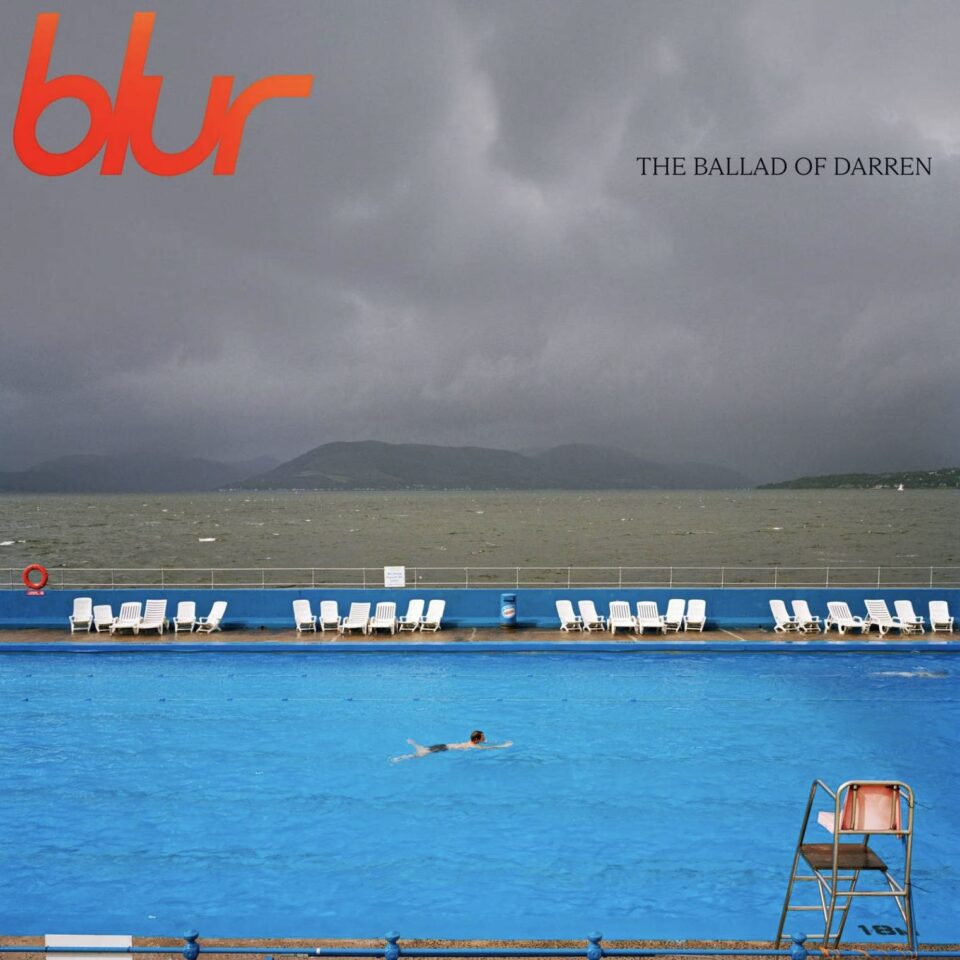
24. Blur, The Ballad of Darren
To say that a new Blur album in 2023 was unexpected would be an understatement. When did they find the time? This year, the group’s leader Damon Albarn released a star-studded Gorillaz album, guitarist Graham Coxon’s The Waeve project put out their first record, and drummer Dave Rowntree released his own solo debut. The Ballad of Darren arrives eight years after The Magic Whip and shows none of that album’s uneasy fragmentation. All four band members (rounded out by bassist Alex James) are united in their maturity and melancholy. Nostalgia is the central focus, but not the warm, fuzzy kind—rather, it’s a cynicism- and sarcasm-tinged version riddled with shoulder-shrugging mistakes and head-hanging confessions. The majority of Darren is slow and reflective, with rare mid-tempo peaks on the pretty “Barbaric” and staticky “St. Charles Square.” It’s a reflection of four comfortably situated middle-aged men who have none of the urgency they had in the ’90s, just the regrets from that era. And these very same revealing regrets are The Ballad of Darren’s main attraction. — Lily Moayeri
Read our review of The Ballad of Darren here.
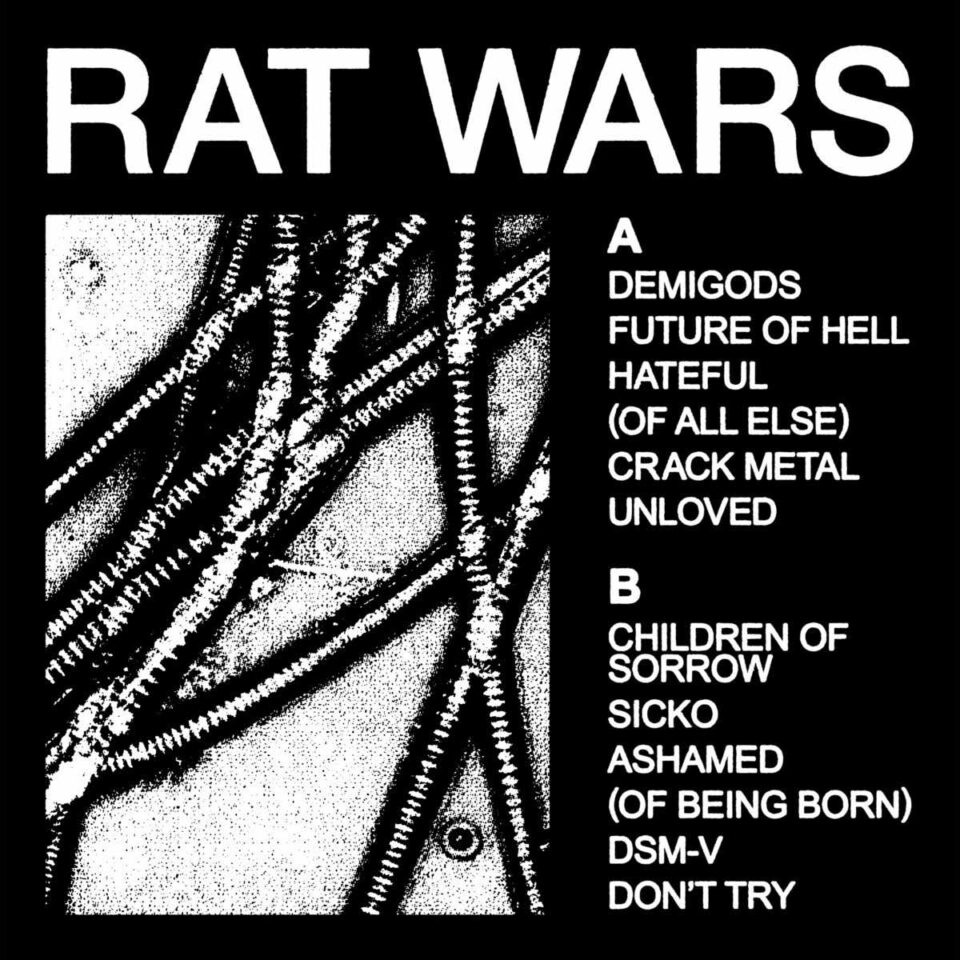
23. HEALTH, RAT WARS
At this point, HEALTH are very nearly leading a double life. After mastering the art of collaboration on three consecutive years’ worth of releases dubbed DISCO4, the industrial noise-rockers picked up precisely where they left off as a self-contained unit for their circuit-closing RAT WARS—an LP that perfectly balances the chugging riffs of 2019’s SLAVES OF FEAR with the unique electro-industrial sounds of their first two records. While their moonlighting gig as a backing band and stem generator for a dizzyingly diverse set of peers can be pointed to in their working with Godflesh and Parisian darksynth figure Sierra on this album, RAT WARS is defined in equal parts by the newly identified link between the band’s past and present and an earnest desire to introduce younger and broader audiences to an era of EBM and heavily aestheticized dance music that mostly got lost in the cracks between the Depeche-ification of ’80s new wave and the rave sounds of the ’90s. In doing so they’ve made a cohesive record built around a sound which it feels like they’ve been striving for all along. — Mike LeSuer
Read our review of RAT WARS here.
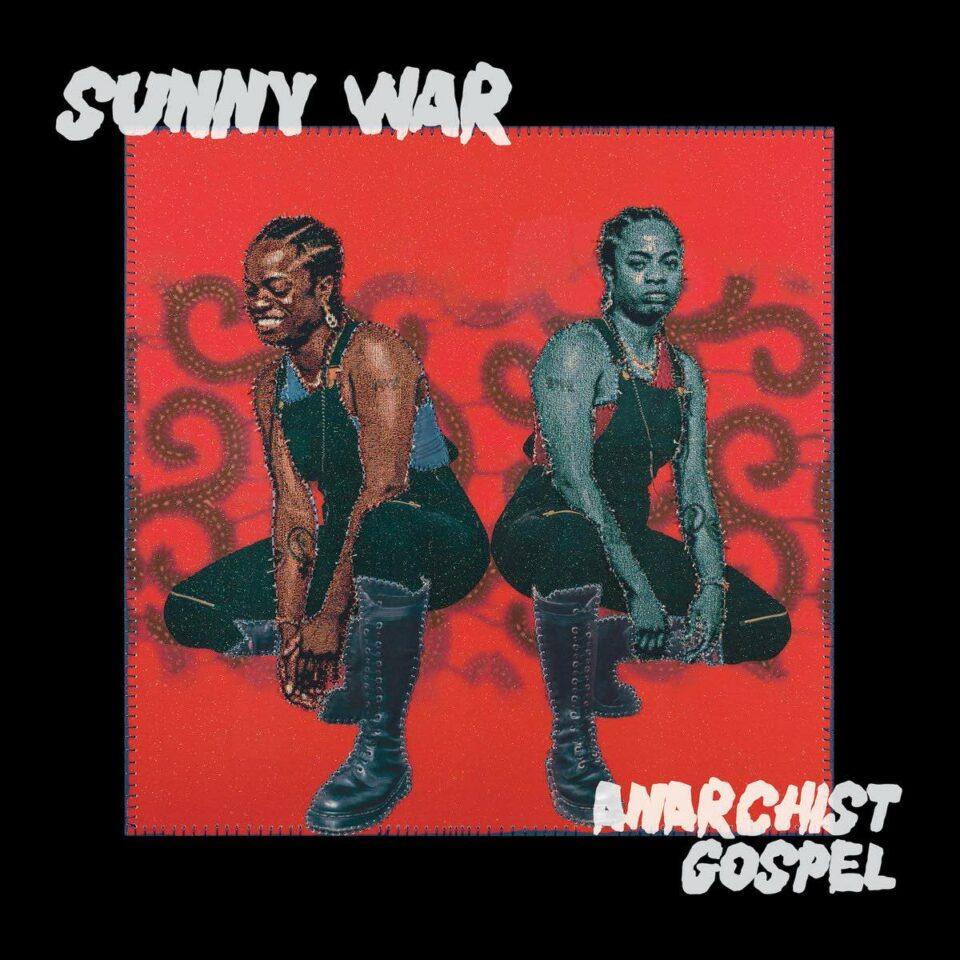
22. Sunny War, Anarchist Gospel
“Good intentions that you keep / Don’t change the fact that you’re a beast,” sings Sunny War on the rollicking “No Reason.” Her fascination with duality and oxymoron predates her ascent as one of Americana’s most exciting voices (she named herself “Sunny War,” for folk’s sake). Anarchist Gospel just refines her thesis on the contradictory essence of human nature even as it refines her blues-rooted sound. Here, with Andrija Tokic (Alabama Shakes, Margo Price) at the production desk and a slew of guests on the track list including Allison Russell and My Morning Jacket’s Jim James, War’s LA busker roots collide with a slicker Nashville sensibility that can lull you into a false feeling of security. Get caught up in her smooth alto and you might not notice the weighty core of hopelessness and surrender at the heart of “I Got No Fight,” or the apparent children’s choir backing her on…wait a minute, is that Ween’s “Baby Bitch”? No matter who shows up with her in the studio, of course, War remains a beast of a country blues guitarist—technically dizzying, but also loose, jaunty, and fun all at once. — Taylor Ruckle
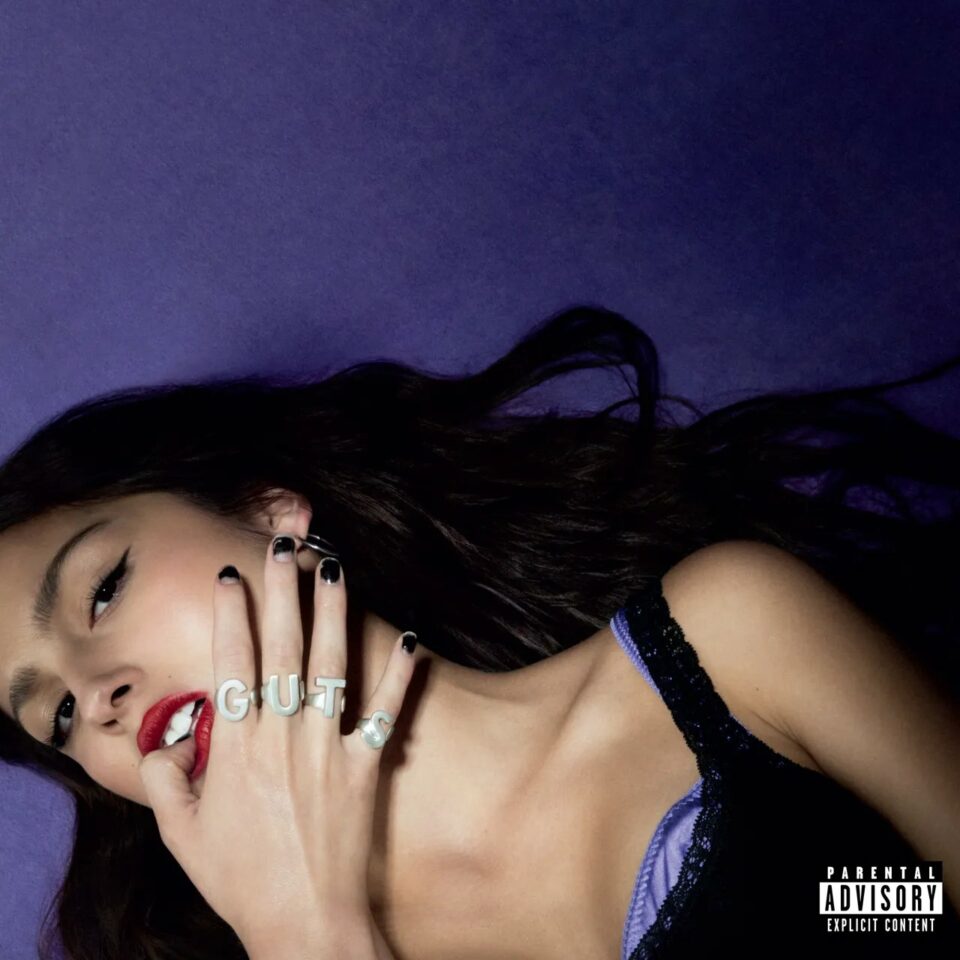
21. Olivia Rodrigo, GUTS
Even as a record-breaking, GRAMMY-winning pop star, Olivia Rodrigo can’t escape the cringe checkpoints symptomatic of late teenagedom and early adulthood’s awkwardness. On her sophomore album GUTS, she transforms the pressures of her newfound fame and infuriating heartache into brass-knuckled pop anthems. Part of GUTS’s universal appeal is owning up to making the wrong decisions and basking in the rebellious fallout. She’s calling up her ex, lying to her friends (and herself) that it’s purely platonic; she’s playing puppeteer with an old fling’s emotions; she’s pretending she’s someone else entirely to fit in with an A-list crowd. GUTS is a sort of bratty pop bible—it’s blunt like the Burn Book from Mean Girls, but she calls herself out alongside manipulative and misogynistic exes, dumb beauty standards, and backstabbing friends. Rodrigo balances melodrama and sincerity, ultimately trying to reconcile her actualized dreams and reality: “I got the things I wanted / It’s just not what I imagined,” she sings on “Making the Bed.” She’s learning the more complicated lessons about growing up, and she proves she has the guts to channel them into chart-making singles. — Margaret Farrell
Read our review of GUTS here.
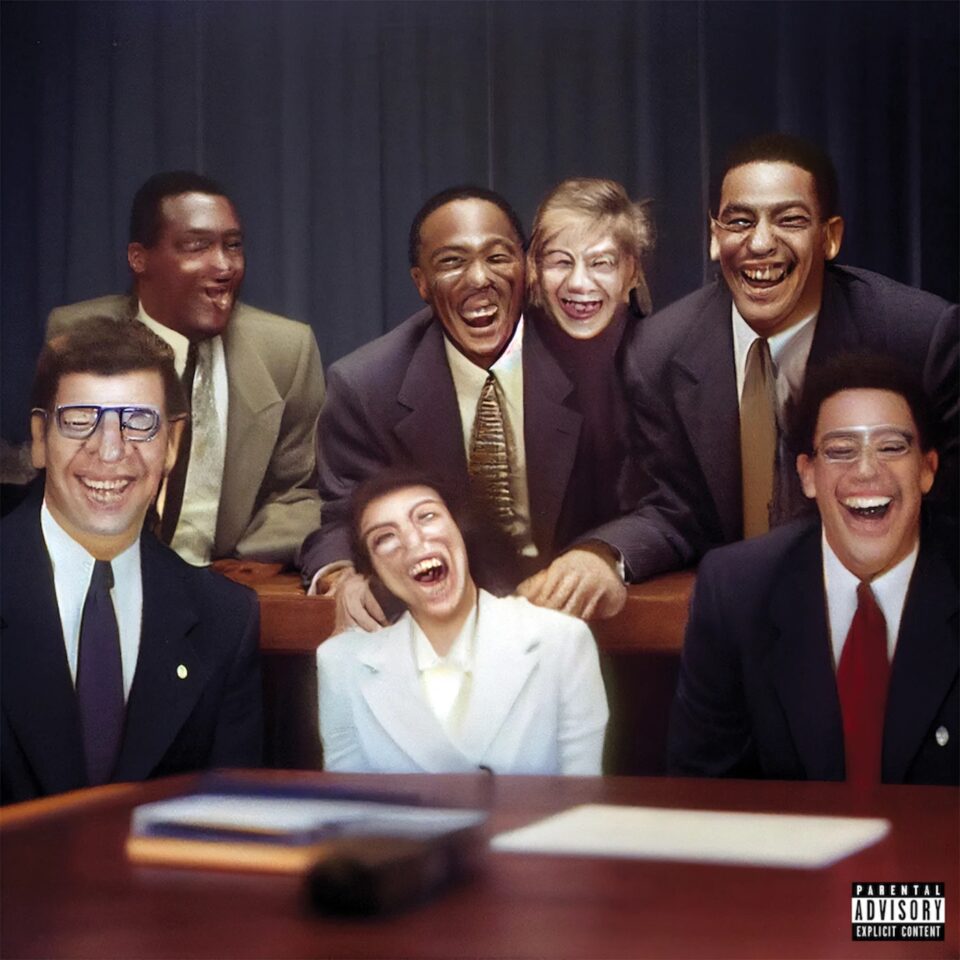
20. Lil Yachty, Let’s Start Here.
For anyone who thought Kanye’s “Power” and its prominent use of a prog-rock sample—King Crimson’s “21st Century Schizoid Man”—was a bold choice, welcome to Let’s Start Here. and a Lil Yachty so radically 180 from his start that you won’t be sure it’s him at first. The newly minted psych-prog rapper with bubblegum-trap stylings and mumble-rap lyricism (see 2017’s Teenage Emotions) now sounds clearer, more cutting, and willing to lean into the uncertain experimentalism of weird rock’s edge on unusually long (for him) tracks such as the new album’s opener and closer, “the BLACK seminole.” and “REACH THE SUNSHINE.” Just for the record, Yachty and his too-live road crew go nuts playing this material in concert. I mean, the Let’s Start Here. material in a live setting may not be Rush, but they’re not not Rush either. And though he went on record calling the LP an “alternative” to his usual output, here’s hoping Lil Yachty continues to take the nuclear prog option going forward. — A.D. Amorosi
Read our review of Let’s Start Here. here.
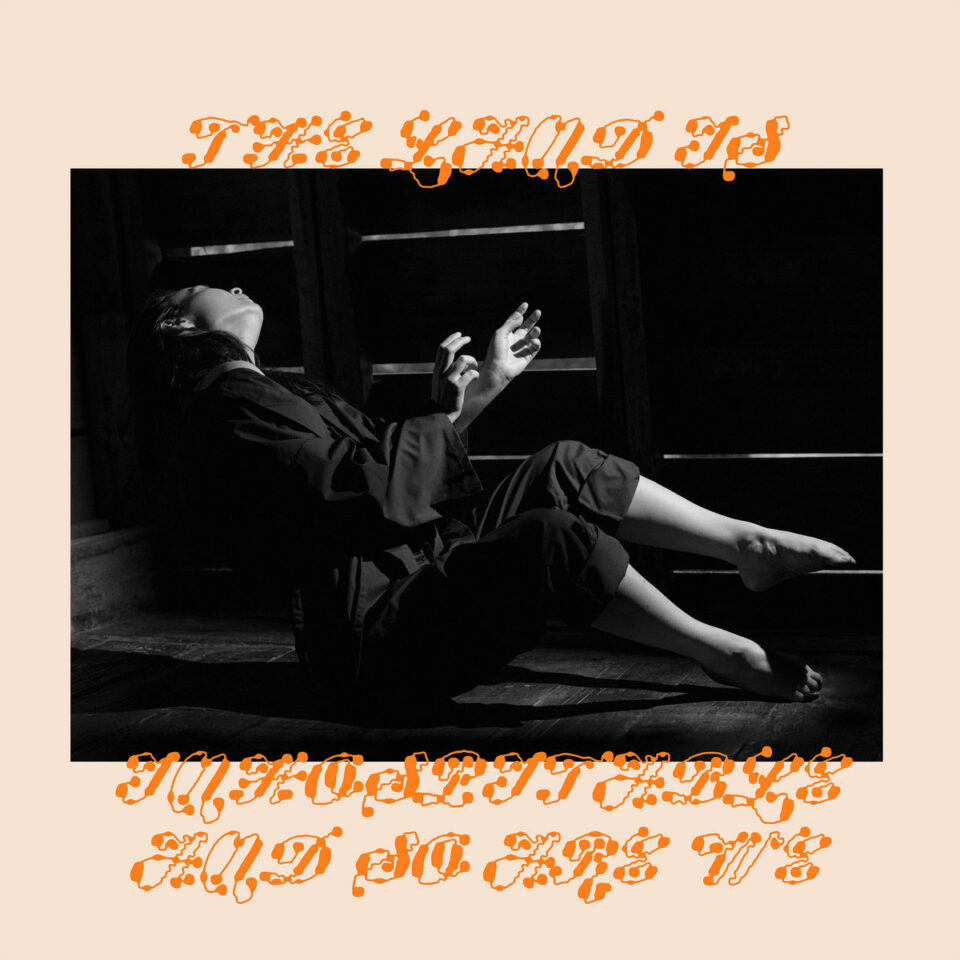
19. Mitski, The Land Is Inhospitable and So Are We
On Mitski’s previous two albums, 2018’s Be the Cowboy and 2022’s Laurel Hell, the songwriter filled every open space with buzzing effects, disco rhythms, and bright synthesizers—as if to drown out the feelings of loneliness and isolation with the company of flashy sounds. “Bug Like an Angel,” the leadoff track from The Land Is Inhospitable and So Are We, opens with nothing more than the spare strum of an acoustic guitar, which until its ascendant chorus backed by a choir, is the barest her music’s ever sounded. On the new album, Mitski gets more comfortable with silences and open spaces, softer textures and imperfections. Playing from a purely analog palette—pianos, strings, horns, and acoustic guitars, primarily—Mitski still navigates a lonesome landscape but finds more beauty within it, often presented at its most surreal with anthropomorphized creatures offering deeper insights about what it means to be human. Through this stark and often strange set of songs, Mitski crafts her most hopeful and poignant album, an unlikely celebration of human connection and endurance in a world that too often feels unforgiving. — Jeff Terich
Read our review of The Land Is Inhospitable here, and check out our recent photo coverage of Mitski’s live show here.
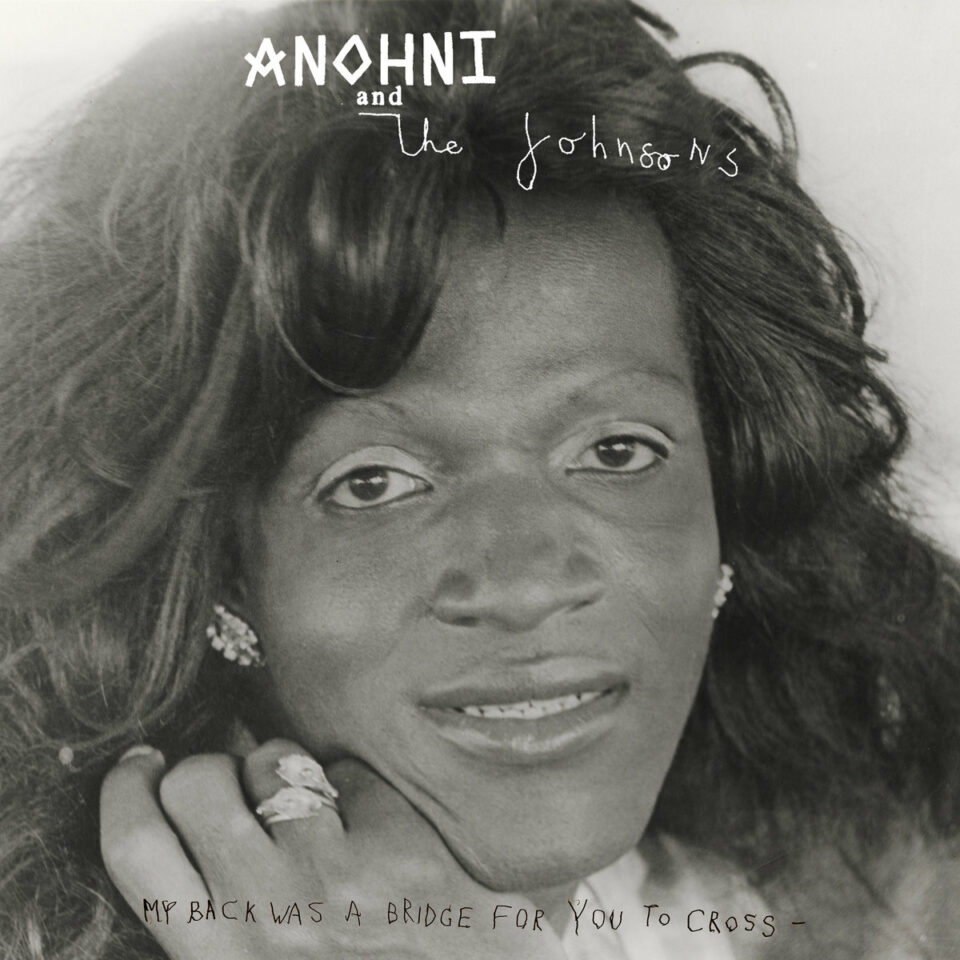
18. ANOHNI and the Johnsons, My Back Was a Bridge for You to Cross
There are some voices that don’t sound human. Or, rather, they sound beyond human—containing so much heart, soul, and suffering that it’s hard to imagine the person possessing it being able to bear the weight of it. It’s almost fitting, then, that ANOHNI’s first album back with the Johnsons in over a decade deals with subject matter of equal gravitas—namely the historic oppression faced by minorities in the US. That a photo of late gay liberation activist and drag queen Marsha P. Johnson (whom ANOHNI met in 1992, just six days before the former was found murdered) graces this album’s cover reinforces just how heavy and unshakeable that burden is. But through this record’s series of soulful, sad songs, ANOHNI turns that shameful history into something riddled with defiant, proud beauty. Devastating, resplendent, and powerful in equal measure, songs like “Scapegoat” and “Rest” mark ANOHNI out as a truly singular talent who not only has something incredibly important to say, but has found an incredible way of saying it. — Mischa Pearlman
Read our review of My Back Was a Bridge for You to Cross here.
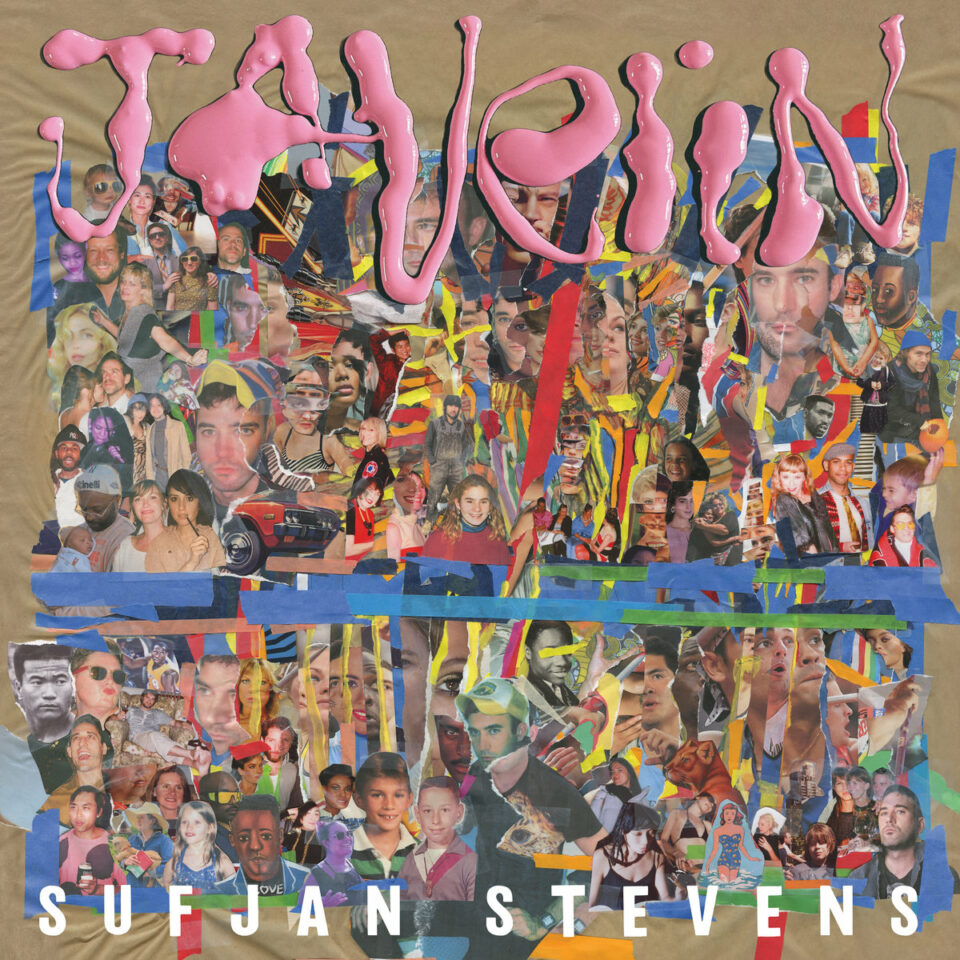
17. Sufjan Stevens, Javelin
Introspective, emblazoning, somber, playful, longing, bittersweet—the work of Sufjan Stevens has never solely been one thing, and his output has been all the richer for it. Still, Javelin is one of the prolific songwriter’s most emotionally intricate records to date. Taking just as many cues from the acoustic stylings of Seven Swans as he does from the electronic freakouts of The Age of Adz, Stevens encapsulates the entire range of feelings that go into a life of adoration, absolution, spirituality, and ephemerality, sometimes in the span of a single song. Take opener “Goodbye Evergreen” and its spare piano opening, acceptance of mortality (made all the more heartbreaking in Stevens’ dedication of the album to his late partner), and later transformation into an exaltation of love in a bombastic array of synths, clanging percussion, and electric guitars. On the eight-and-a-half-minute late-album climax “Shit Talk,” Stevens offers a piercing glimpse at conflicted romance, simultaneously a plea for resolution, a mournful end, and—ultimately—an affirmation of eternal devotion, swirling around a refrain of “I don’t wanna fight at all / I will always love you.” In commemorating every facet of his love on Javelin, Sufjan Stevens makes what’s fleeting last forever. — Natalie Marlin
Read our review of Javelin here.
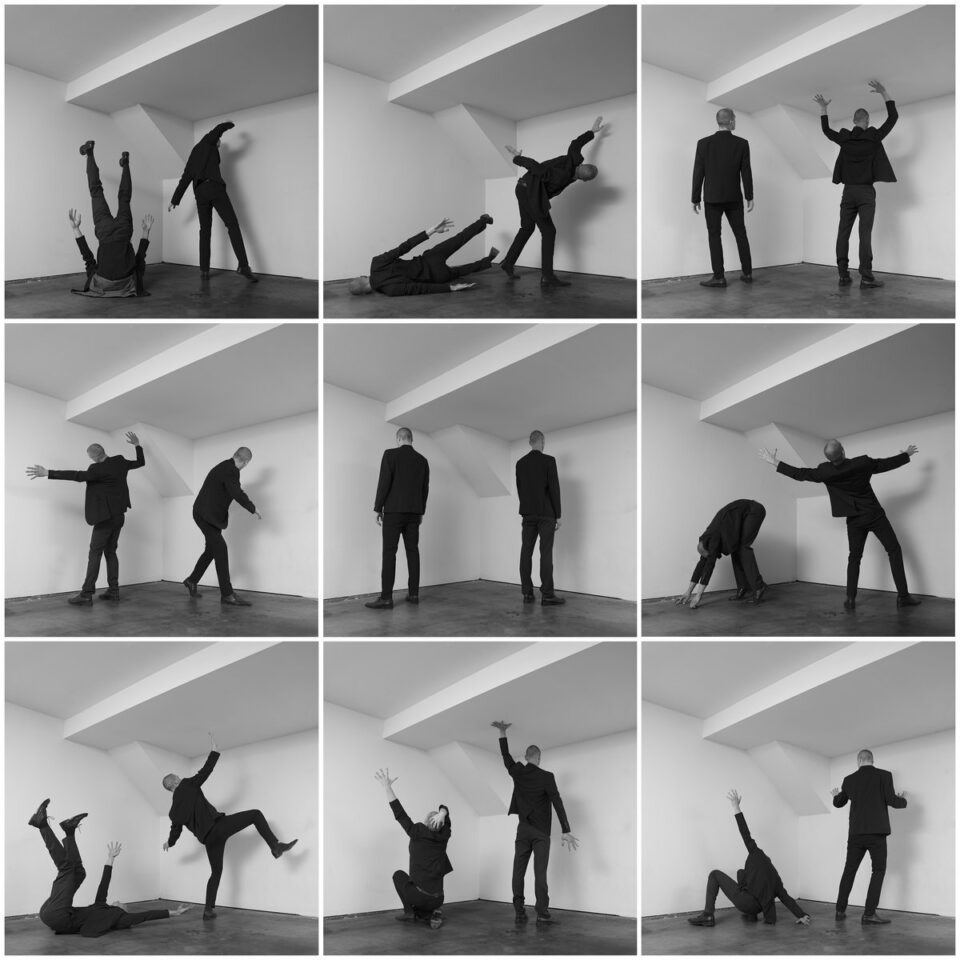
16. Sprain, The Lamb as Effigy
One of the most promising experimental rock bands in recent memory, LA foursome Sprain beat the sophomore slump earlier this year with a noise-rock masterpiece that belied its absurd title (subtitle: Three Hundred And Fifty XOXOXOS for a Spark Union with My Darling Divine). The 97-minute record isn’t for the faint of heart, as Sprain steadfastly refuse to capitulate to the listener at any point on the LP—or even on any one of its songs. If Philip Glass compositions mesmerize you, The Lamb as Effigy is your bag. From obtusely sounding guitars to out-of-tune distorted instruments to deconstructed song structures, Lamb is designed as a complex, abstract piece of music-as-art. The material isn’t just difficult to access, but to even penetrate at all—at least, not at first. After a half-dozen listens, one can begin to find some entry points and comprehend the record, in which listeners can detect new sounds and tricks with each engagement. And engage with it you very well should: This stupefyingly spectacular final record is all we have left from the outfit who unexpectedly broke up before they broke big. — Kurt Orzeck
Read our review of The Lamb as Effigy here.

15. Ratboys, The Window
There are approximately 11 very good songs on Ratboys’ newest record The Window, but there are two that best illustrate what this band can do better than almost any other on this, or any other, list. “Black Earth, WI” arrived back in March, a few months before the group even announced the album proper, and it immediately entered the pantheon of this decade’s rush on rootsy, twangy indie-rock epics, gliding through its eight-minute runtime like a boozy August night laid bare. Then, in June, they hit us with the record’s devastating title track. Subdued and sweet, “The Window” is vocalist Julia Steiner at her best, presenting an achingly personal love story through the prism of the catchiest indie rock released this year. Ratboys are a band of tight hooks and catchy melodies, but it’s the specificity of their songwriting that makes the project so endlessly endearing. For a band that arrived so fully formed nearly a decade ago, they continue to outdo themselves with every release. The Window will be hard to top, but I don’t think we have any reason to doubt them. — Sean Fennell
Read our review of The Window here.
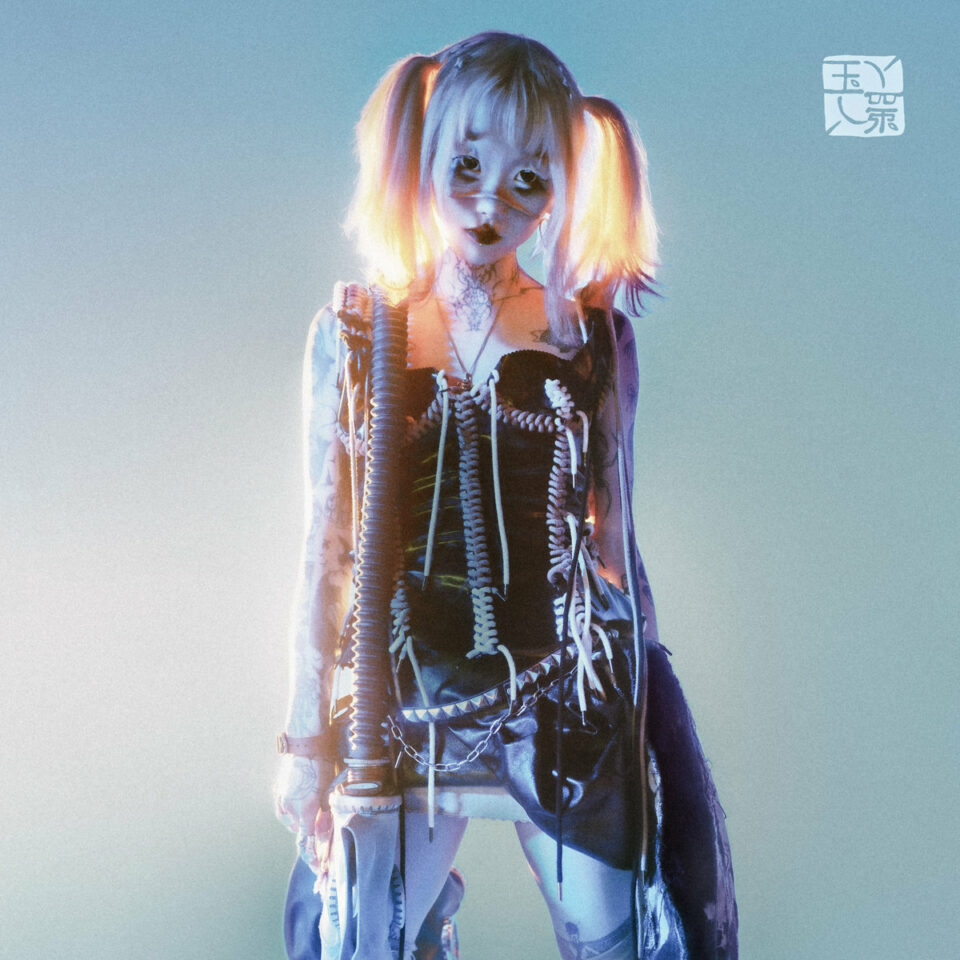
14. yeule, softscars
yeule’s third album softscars feels like both a nightmare and a daydream. There’s plenty of rotting flesh, crying angels, blooming gardens, and immortal love—it’s all the same to yeule. “Under a crumbling sky / I feel insane,” they sing softly on “ghosts,” a cut that gently sways with droning guitar wails and an eerie piano twinkling in the background as yeule continues on: “Under a clear blue sky / It feels the same.” After years of emphasizing their cyborgian identity, yeule has recognized that their escapist, pixelated existence can be equally damaging as a bruised corporeal one; the resulting softscars is corroded software intertwined with mutilated flesh. The songwriter not only conjoins these worlds lyrically, but evolves their glitchy compositions into something grittier. Whether it’s a balance or a confusion of shadow and light, softscars’ mix of dark-web rock and bright dream pop is a revitalizing force. — Margaret Farrell
Read our review of softscars here, and read our conversation with yeule about touring the record here.
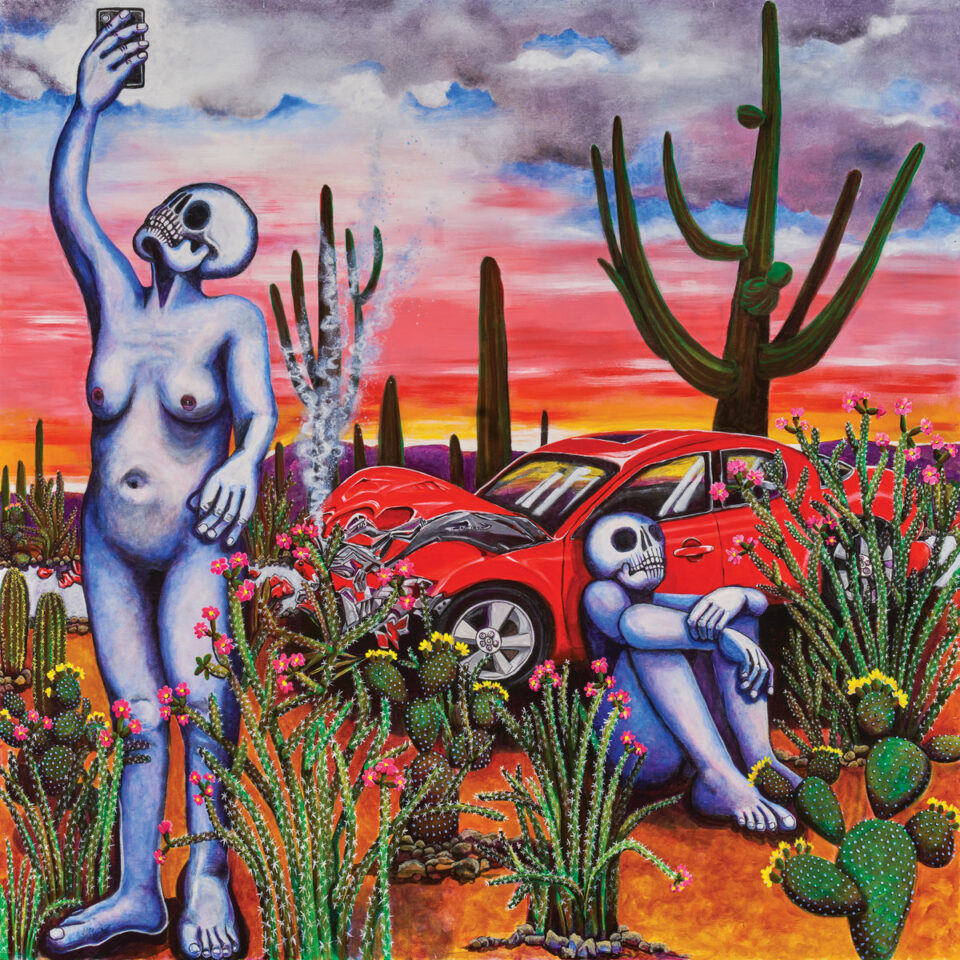
13. Indigo De Souza, All of This Will End
Falling in line with a recent slate of introspective and catchy ’90s-inspired rock LPs from young voices barely old enough to remember that decade, Indigo De Souza’s All of This Will End stands apart through its grungy arrangements, folksy leanings, and visceral songwriting. De Souza flawlessly conveys heart-wrenching sadness as one looks at the past through the lens of shame, remorse, and new understanding. Meanwhile, All of This Will End’s macabre yet playful album cover (created by De Souza's mother) perfectly encapsulates its themes of hope, mortality, and change. Though this record sees De Souza at her most earnest and vulnerable, she can still be scathingly blunt at times: “I can’t believe I let you touch my body / I can’t believe I let you get inside,” she sings on the single “You Can Be Mean.” All of This Will End quickly immerses you into De Souza’s inner world through its authenticity and rawness. At the same time, Dexter Webb’s guitar work on his 12-string is impeccable, drawing you in with his bright yet melancholy melody lines. It’s hard not to like every song on this album—every minute is worth the listen. — Juan Gutierrez
Read our cover story on Indigo De Souza for All of This Will End here.
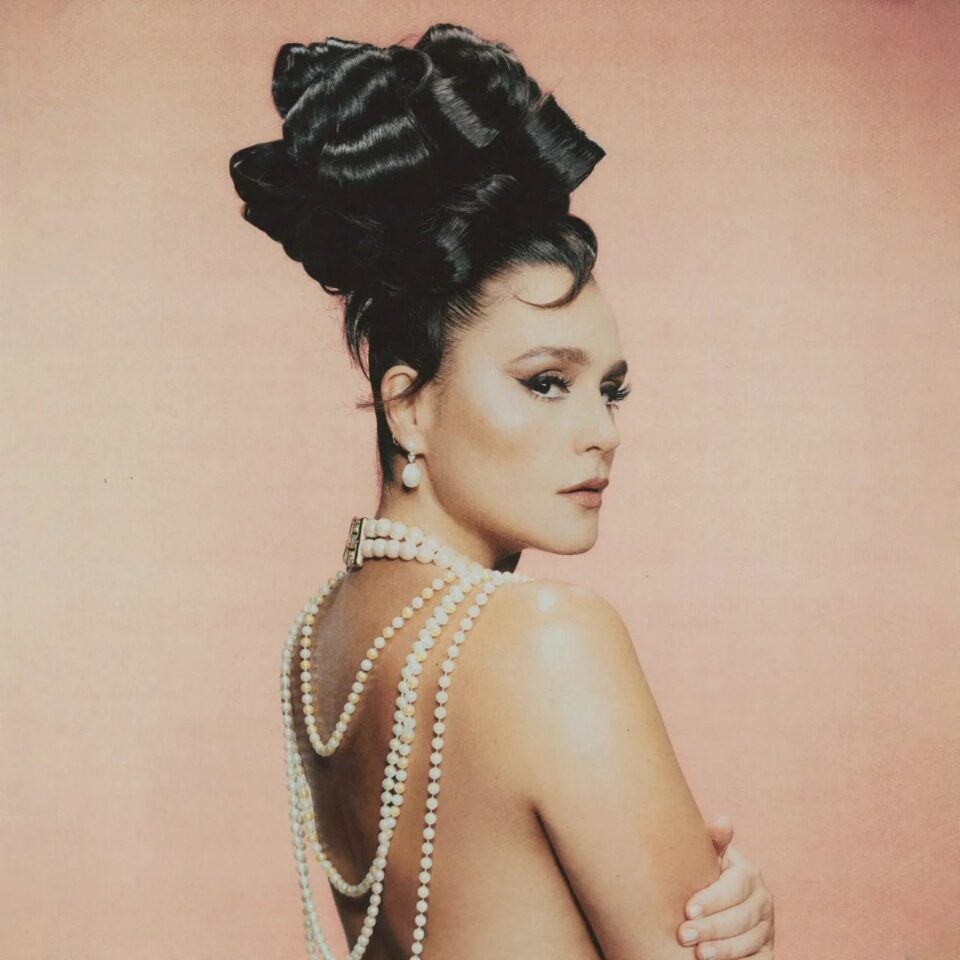
12. Jessie Ware, That! Feels Good!
Jessie Ware’s fifth album celebrates pleasure with absolutely zero barriers. The pristine R&B and electronic trappings of previous outings are tossed off like an evening gown and Ware is singing with the flirtatious quality of someone in just high heels and pearls. Producers James Ford and Stuart Price dive deep into the styles of classic disco with Ware at the helm and the wafting smoke of double entendres and lovestruck lyricism giving you a contact high. And That! Feels Good! earns the exclamation marks in its title: Tracks such as “Freak Me Now,” “Free Yourself,” and “Shake the Bottle” are effervescent pop compositions and reminders of Ware’s singular powers no matter the genre. She makes sure the songs force you dance until all the pearls come off, even if there are tears in the corner of your eyes. That’s modern disco music for beautiful people experiencing the pure ecstasy of empowerment. That! Feels Good! will help you dance yourself to sleep and invites you to bring a friend or two. — Kyle Lemmon
Read our review of That! Feels! Good! here.
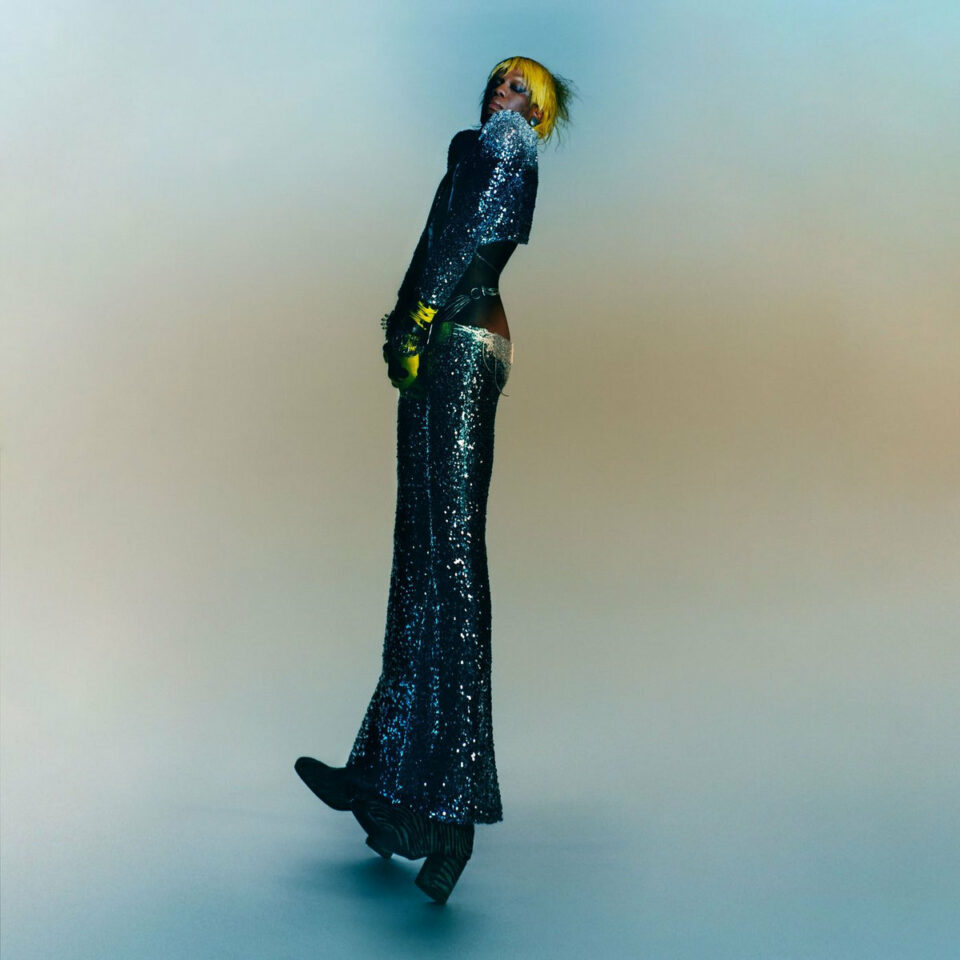
11. Yves Tumor, Praise a Lord Who Chews but Which Does Not Consume; (Or Simply, Hot Between Worlds)
Is it a vulnerable, relatable record by anyone else’s standard? No. But coming from Yves Tumor, it’s downright down-to-earth. The extravagantly titled Praise a Lord Who Chews but Which Does Not Consume; (Or Simply, Hot Between Worlds) begins with a pulse-pounding jumpscare, ends in symphonic splendor, and overall keeps Tumor aloof and elusive. But it also finds the experimental-pop auteur turned glam-rock god freaking it sensitive style, to borrow an expression. Beneath all the heavenly bluster, Tumor hides earthly delights like “Lovely Sewer,” with its aching, twilit groove, “Fear Evil Like Fire,” with its delicate falsetto, and a gorgeous, understated choral interlude to conjoin “Meteora Blues” to “Parody.” So forget the aural fireworks on offer; you’ve probably seen a shooting star before, especially if you listened to 2020’s Heaven to a Tortured Mind. This time, Tumor knows, you can spare a moment to take in the inky sky that waits behind each burst. With Noah Goldstein and Alan Moulder on production and mixing, everything comes into sharp, 4K focus—the space and the spectacle alike. — Taylor Ruckle
Read our review of Praise a Lord here.
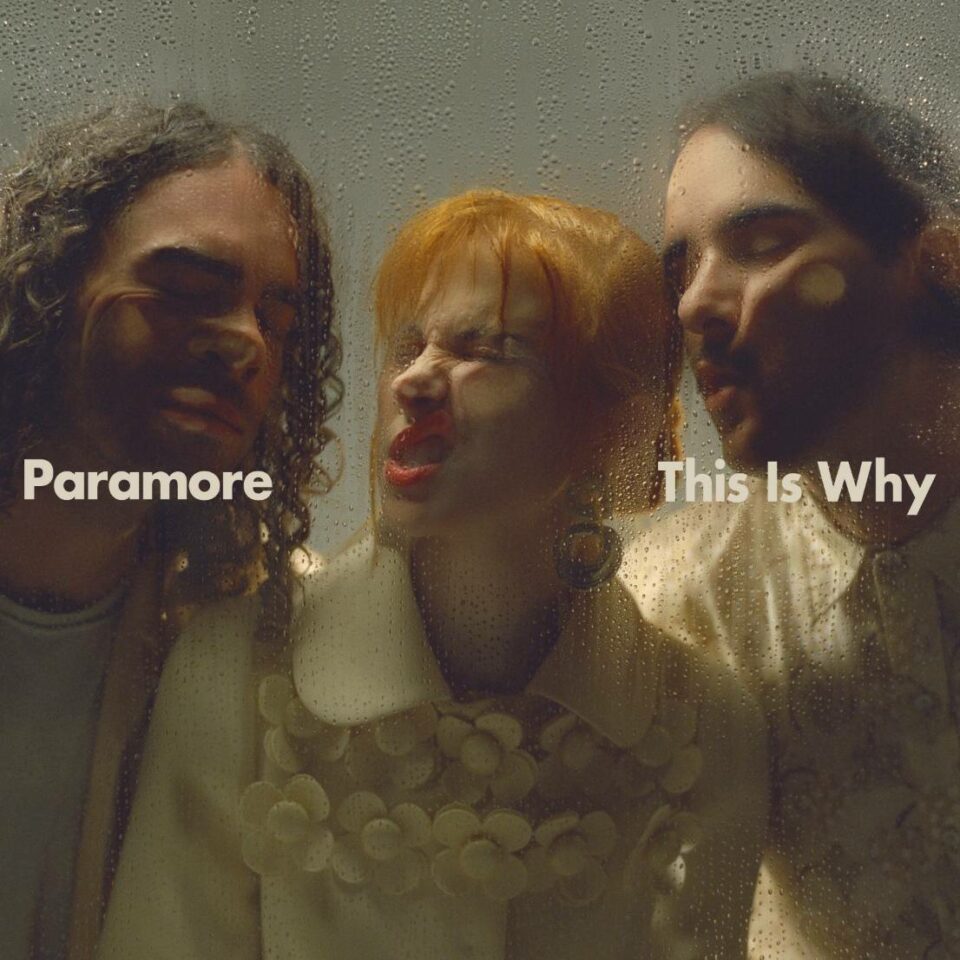
10. Paramore, This Is Why
When you’ve had a career like Paramore has—essentially redefining pop-punk and emo, surviving a riotous reappraisal, experimenting with genres and line-ups and side projects, all before Hayley Williams’ 30th birthday—it must be tough to know where to go next. The trio’s first album in six years, This Is Why, is a reset. It returns to a punk-adjacent space, teeming with the kinetic, outta-nowhere choruses abundant in their early work (“The News,” for one, will scratch that Riot! itch). But those effusive snarls and jerky rhythms are filtered through seen-it-all sonic maturity; they cohabit with electropop, funk, and disco ingredients in such a focused and seamless way that it sounds as though the band has finally landed in the niche they were always meant to find. Emblematic of this Venn diagram is “Running Out of Time,” a dynamic bop with one of the year’s stickiest hooks. This is the Paramore we know and love (Hayley Williams’ melodious shriek remains one of the most compelling in all popular music), but it’s also a Paramore fully realized. Running out of time? They’re just getting started. — Hayden Merrick
Read our review of This Is Why here.
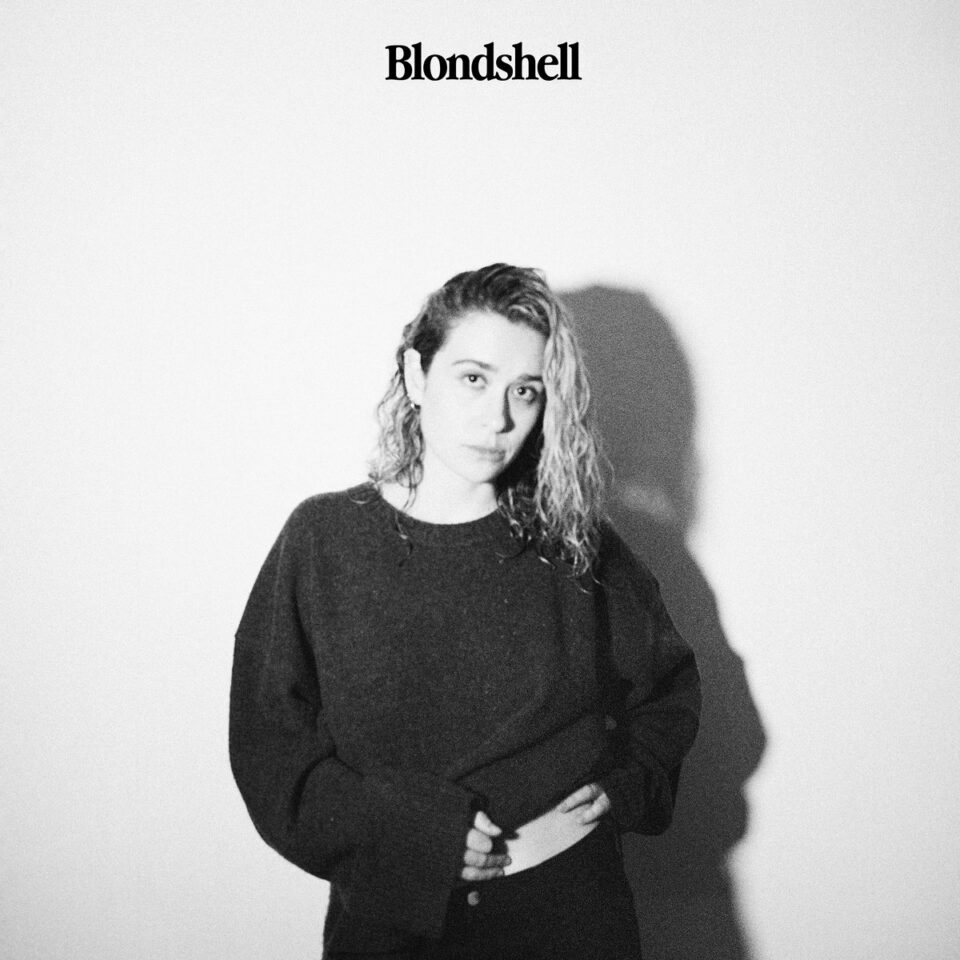
9. Blondshell, Blondshell
Blondshell summoned the spirit of the ’90s in order to deliver one of the most compelling debut albums of the year. A record that features a myriad of emotions, you’ll go from laughing, to tearful, to blood-shaking fury in the space of a few songs on her self-titled LP. Sabrina Teitelbaum utilizes scruffy, Pavement-esque indie rock and grunge to explore tales of terrible sex, quicksand-like relationships, and the strength you can find in others across an album documenting the highs and lows of our closest relationships. What makes Blondshell particularly compelling is the pure catharsis that seems to come so naturally to Teitelbaum’s sound—this is music to find common ground in, and it has the all-encompassing vigor to make you feel like you can seize any opportunity. A mixture of candid honesty and quick wit, Blondshell makes you want to recite this album over and over again. It’s a concise debut that never ceases to offer excitement as it explores life’s imperfections in a raw and gloriously direct way. — Matty Pywell
Read our Breaking profile on Blondshell for Blondshell here.

8. Christine and the Queens, Paranoïa, Angels, True Love
Christine and the Queens’ fourth album, Paranoïa, Angels, True Love, is the musical iteration of the grief, pain, and despair of losing a parent, told through the theatrical lens of Tony Kushner’s two-part play Angels in America and tinted with the filter of The Who’s rock opera Tommy. The titular Chris (a.k.a. Redcar, a.k.a. Red) pours out his emotions over his mother’s death in the three acts of the almost 100-minute album, empowering the best version of his signature experimental pop. The record owes as much to trip-hop inspirations stemming from the best of the Bristol contingent to orchestral elements such as Pachelbel’s Canon (you know, the church wedding music). Co-produced by Mike Dean, Paranoïa, Angels, True Love features Madonna, who appears as spoken-word AI—a disembodied angel, if you will—and 070 Shake, whose affected vocals balance Chris’ wrenching deliveries. From the dark dissonance of “Tears Can Be So Soft” to the piano tinkles of the whispery intimacy of “Flowery Days” and the drum ’n’ bass beats of “Track 10,” Chris makes it all work. — Lily Moayeri
Read our cover story with Christine and the Queens about Paranoïa, Angels, True Love here.

7. billy woods & Kenny Segal, Maps
Death, taxes, and billy woods putting out one of the best albums of the year. Whether on his own and/or with Armand Hammer, woods has become rap’s most consistent bard, a prognosticator of our modern apocalypse and the mundanities that stack atop each other to sculpt our lives. On his latest solo LP Maps, he turns the lens inward, chronicling the empty lows and thrilling highs of making a living on the road. Produced entirely by Kenny Segal, one of indie rap’s best beatmakers, woods crafts an album of delightfully quotable one-liners and knottily narrated tales of bumping Tupac while sipping on green smoothies before therapy. On “Soft Landing,” woods comes out shooting like a deadly three-point threat who knows he’s got a hot hand. Over dusty drums and a scratchy guitar sample, woods spits, “My daily routine narrated by Attenborough / Over the instrumental to ‘Keep It Thoro’ / My chain banged glass ceilings, Joe Burrow / When the contract came, white man read while I sit, brow furrowed.” Who else is name dropping a scientific legend, a Prodigy song, and the Bengals quarterback in the same verse? By this merit alone, woods has to be considered an immense gift to the world of rap music. Luckily for us, on Maps these lyrical flourishes are where things just start to get cooking. — Will Schube
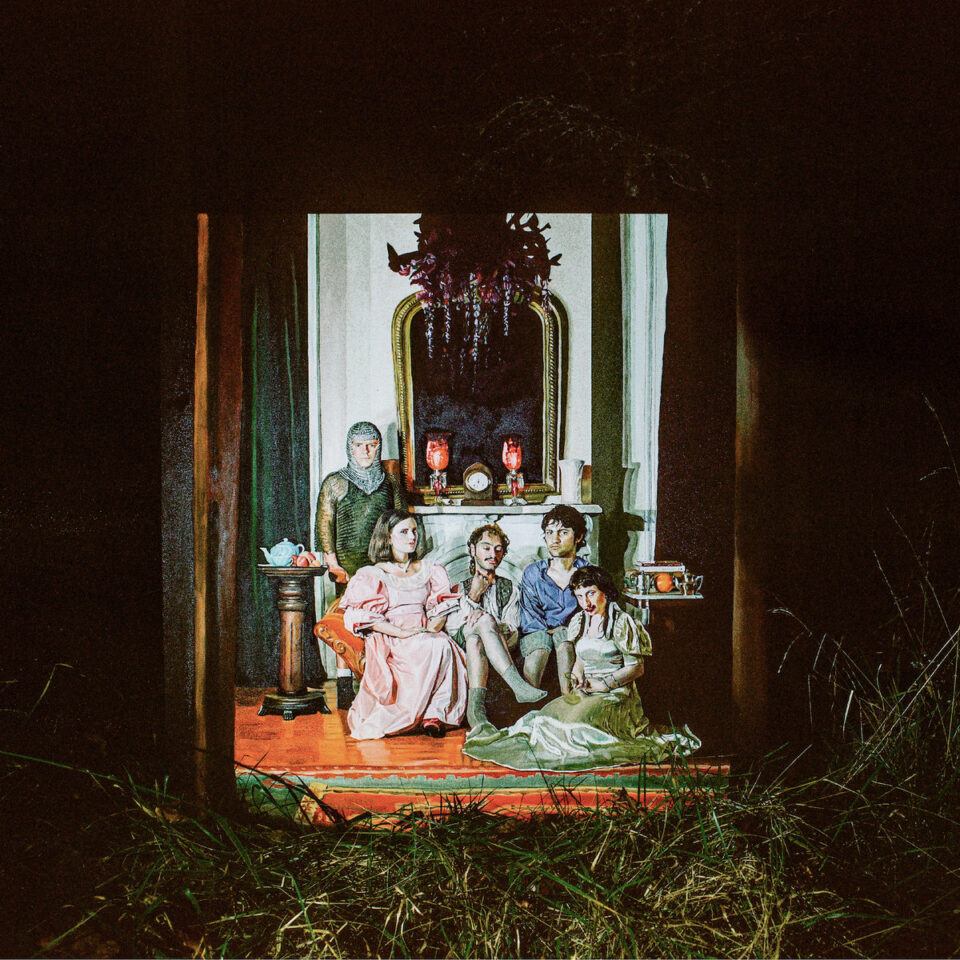
6. Wednesday, Rat Saw God
To paraphrase Wednesday’s Karly Hartzman, it’s a cruel irony that our strongest memories are often the most painful. Hartzman dives deep into the abyss throughout Rat Saw God, pulling past traumas and misdeeds up onto the jumbotron for the whole indiesphere to see. This makes for a bracing listen, but not an entirely sad one. Maybe it’s the duality of the Southern Thing—finding perverse humor in yellowjacket stings and Benadryl overdoses—or maybe it’s just that the word “piss” is funny like the Earth is round. The rest of Wednesday match this dichotomy in lockstep, drawing every sinew out of her fucked-up nu–Southern Gothic with rangy, ear-splitting volume and textured, laser-focused feel in equal measure. The eight-minute, show-stopping sludgefeast “Bull Believer” looms large at track two, but it’s the quieter, harder-to-pin-down moments on the back half that point toward exciting new avenues. Wednesday may not be the first group to blend caterwauling fuzz with down-home folklore, but they’re well on their way to being the finest. — Dillon Riley
Read our conversation with Wednesday about Rat Saw God here.

5. Caroline Polachek, Desire, I Want to Turn Into You
Categorizing the sounds of Caroline Polachek feels completely pointless. In a climate where genre structures are becoming increasingly detachable, Desire, I Want to Turn Into You feels like music without borders. With the help of Sega Bodega, A. G. Cook, Danny L Harle, and more production collaborators, Polachek has crafted a musical universe that feels singular. Her second solo album after 2019’s Pang feels like a much more consistent and fully conceptualized version of her ethereal beginnings. It’s hard not to be seduced by the production of this album, where satisfying and almost indescribable textures linger within each song—this is, after all, an album centered around desire, and as such her vocals and lyrics are often yearning calls, never more so than on album closer “Billions.” Lust, closeness, and attachment are all narrative throughlines within an album that feels endlessly vast. Hopping between new melodies and beats on a whim, it’s an interplanetary experience that is without doubt one of the most unique musical events of the year. — Matty Pywell
Read our review of Desire, I Want to Turn Into You here.
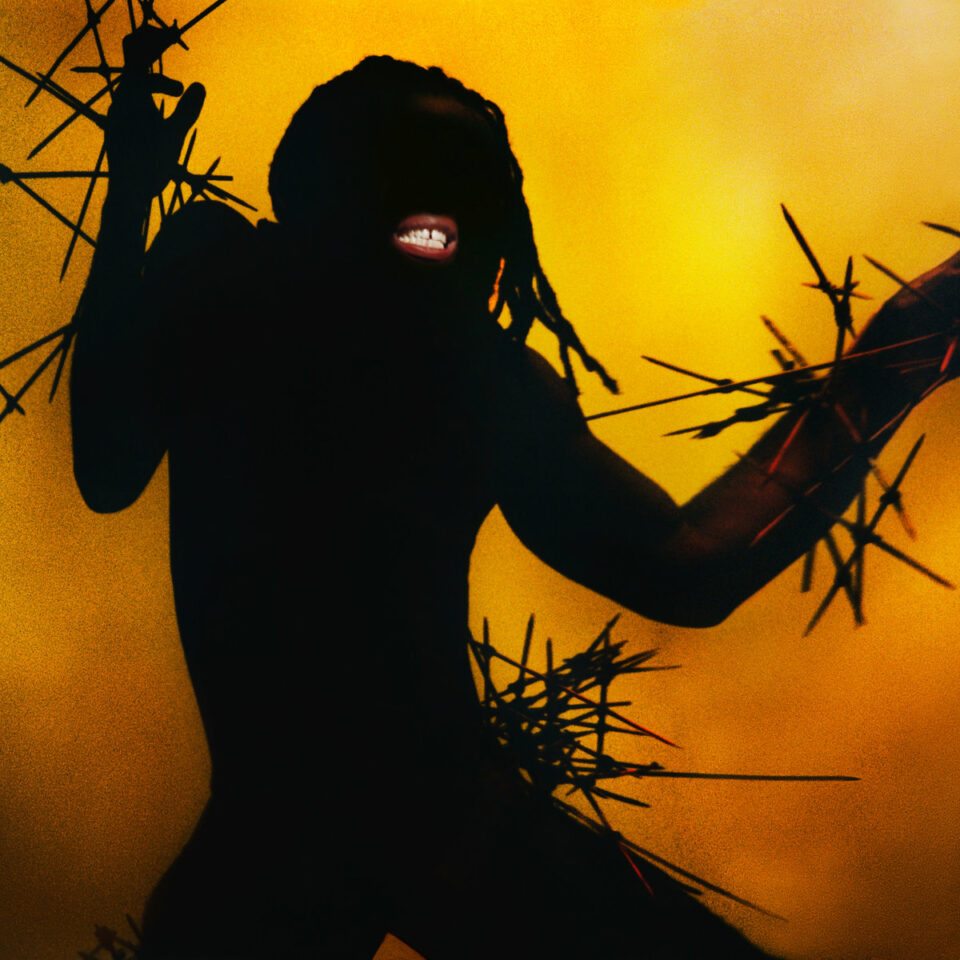
4. Young Fathers, Heavy Heavy
Young Fathers make their mastery of idiosyncratic pop seem so easy. After three LPs and two tapes, Heavy Heavy arrives like this Scottish trio of expert craftsmen refining their art, cutting right to the bone with a lean, 10-track album that offers their vastest range of sounds to date. Here, the compounding gallop of “I Saw” can live side-by-side with the delayed-release firecracker of ballad “Tell Somebody,” and both can give way to bold new territory like the freewheeling vocalization of “Ululation.” Realized in back-to-basics sessions after 2018’s studio-heavy Cocoa Sugar, Heavy Heavy sees the group redoubling their dynamics and the joy that emerges in drawing from each other’s energy, resulting in an album packed to the brim with infectious vocal interplay, thumping percussion, and a thrilling sense of unpredictability. It’s Young Fathers at their most jubilant and celebratory, even in the face of a world getting heavier every year. — Natalie Marlin
Read our conversation with Young Fathers about Heavy Heavy here.

3. PJ Harvey, I Inside the Old Year Dying
Kept alive in the post-punk public’s mind with a rarities-rich remastered catalog of her past crunching, spidery noise dramas, eerie folk interludes, contralto screeching, and soul-searing poetry, the facts remained clear: PJ Harvey, one of the brightest, boldest musical minds of her generation, hadn’t bothered to release a new album in seven-plus years. So to have I Inside the Old Year Dying filled with Welsh-like linguistic twists (a backward-sounding Dorset dialect) and a more supplely dramatic brand of verbal harangue than her usual is mean and ominous joy. Having written and released an epic poem, Orlam, in her time off from music, Harvey and her longtime collaborators John Parish and Flood (no relation to us) splice the lyricist’s fresh texts with bits of the Bible and chunks of Shakespeare for a loftily wordy exercise—something more head than heart. From there, Harvey and company give her heady poem an earthen soundtrack of moss gardens, thunder drums, battered field recordings, and a spindly folktronic gauziness that provides the material with an ancient yet modern feel. — A.D. Amorosi
Read our review of I Inside the Old Year Dying here, and check out our recent photo coverage of Harvey’s live show here.
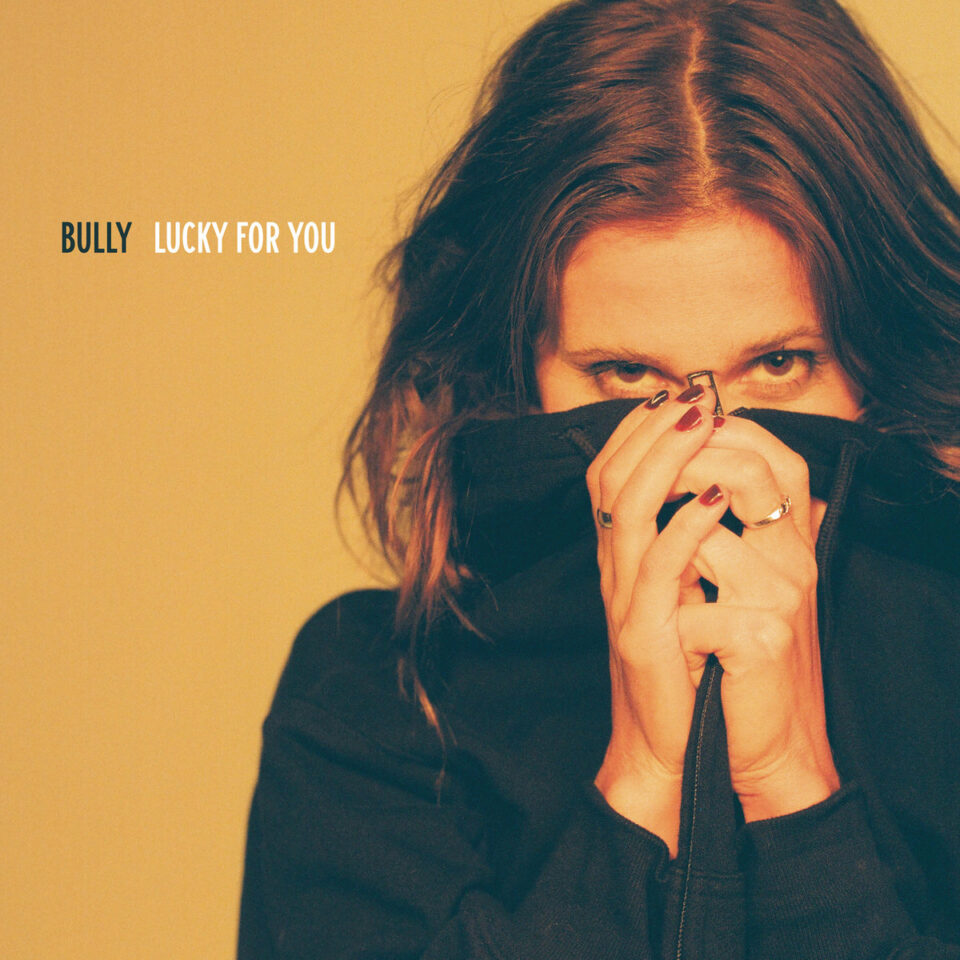
2. Bully, Lucky for You
It took Bully 10 years to reach a pulpit where they could preach to a growing congregation. A mere decade ago, Alicia Bognanno was working as an audio engineer and dating drummer Stewart Copeland (one last time: not the “drummer Stewart Copeland” from The Police), with whom she launched Bully in Nashville. In the 10 years since, the band got dropped by a major label, Bognanno and Copeland split, and Bognanno refurnished Bully’s grunge-indebted sound to make it more immediate and punchy. It all paid off for the singer/guitarist/bassist, as Lucky for You immediately makes clear. Trendy words like “authentic” and “transparent” don’t do justice to Bognanno: It’s as if she’s laid a pipeline directly from her heart to our ears, with her convictions always sounding loud, bright, and clear. Bognanno reflects on everything from melancholic moments (“How Will I Know”) to rebounding from failure (“All I Do”) to this waking dream we call life (the Soccer Mommy–featuring “Lose You”) across the album’s 10 tracks. Lucky for You dropped in June with “album of the summer” buzz, but by the end of 2023 it’s quite nearly our album of the year. — Kurt Orzeck
Read our profile on Bully for Lucky You here.

1. boygenius, the record
If you have any previous exposure to the work of Julien Baker, Phoebe Bridgers, or Lucy Dacus, then you might make a few safe inferences about their inaugural album-length team-up as boygenius. You might assume, for instance, that the songs are bruisingly sad yet frequently funny, as quotable as an episode of Succession. You might likewise assume that while the songcraft is confident and assured, the characters who populate those songs are often beset with insecurity, regret, and self-doubt. You’d be right on every count.
And yet the record is very much greater than the sum of its parts, offering surprises for which its individual constituents may have left you ill-prepared. Perhaps the greatest of these surprises is the album’s palpable warmth. Baker, Bridgers, and Dacus can all be caustic wits, witheringly deadpan both in interviews and on social media. And yet the animating emotion on the record isn’t hipster cool or sardonic jest; it’s the obvious joy and affection the three boygeniuses share with and for one another, manifest in their tangled harmonies, their companionable lyrics, and the egalitarian spirit that permeates their music. It’s not a joke to say that the real supergroup is the friends we made along the way.
That friendship is core to the power of their songs, but also their iconography. From aping The Beatles’ old TV setup for their SNL appearance to invoking Nirvana on the cover of Rolling Stone, boygenius have spent the better part of 2023 using their ascendency to shake up rock and roll’s canonized boys’ club. Even the working title for the record (allegedly, they almost called it The White Album) plays with rock’s insular self-mythology. But while the actual White Album was the soundtrack to four men coming apart at the seams, the record is a warm tribute to harmonized differences and shared commitment. That’s the thing about boygenius; they’re not just smashing institutions, they’re offering female friendship and solidarity as a beautiful, meaningful way to fill the vacuum.
Maybe that’s why the record is most galvanizing on the true trio songs: Some of the year’s most acute musical pleasures are hearing boygenius shred together on “Satanist,” a headbanger’s anthem of unwavering camaraderie, or trading verses on “Cool About It,” which neatly spotlights their three complementary voices. Weirdly, though, it’s Dacus’ solo piece “True Blue” that works best as the album’s mission statement: “It feels good to be known so well / I can’t hide from you like I hide from myself.” In the end, the record feels like an ode to the messy, scary, life-giving business of being seen in all your vulnerability—and being accepted anyway. — Josh Hurst
Read our review of the record here, and check out our recent photo coverage of boygenius’ live show here.







